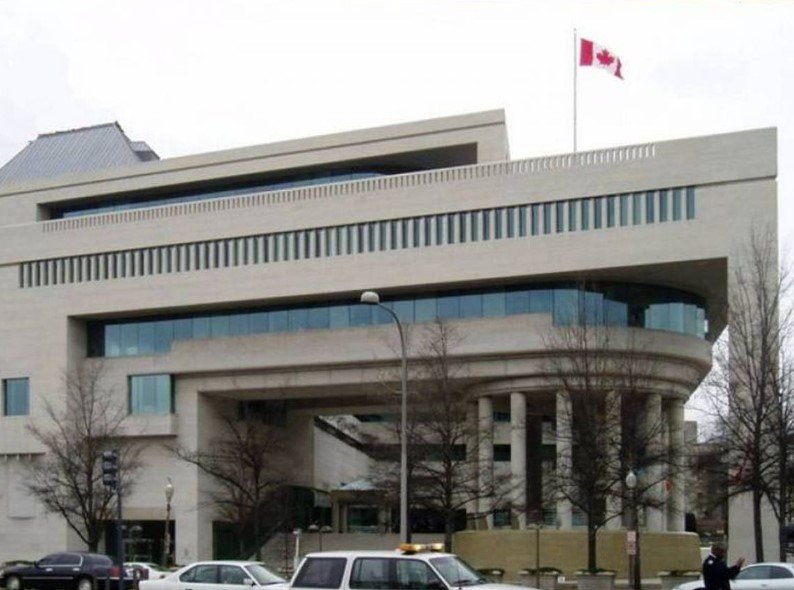Canada’s Global Affairs website sparked controversy by listing its Tel Aviv embassy in “Palestine” just days after Prime Minister Mark Carney recognized the State of Palestine at the United Nations General Assembly. The change, spotted on September 24, 2025, drew quick backlash on social media and from officials, highlighting tensions in Canada’s approach to the Middle East.
What Happened on the Global Affairs Site
The update happened soon after Carney’s speech at the UN on September 22, 2025, where he backed a two-state solution and formally recognized Palestine. Global Affairs Canada revised its travel advisory page, shifting references from “Israel, the West Bank, and the Gaza Strip” to “Israel and Palestine.”
This included reassigning the embassy in Tel Aviv, a city firmly within Israel’s borders, to “Palestine.” Critics called it a geographical error that ignored established borders.
The move aligned with Carney’s push for peace, but it raised questions about bureaucratic haste. Former diplomats noted how unusual it was for such a swift policy shift in a department known for slow processes.

Social Media Backlash and Viral Spread
The error went viral on platforms like X, formerly Twitter, within hours of being noticed. Users expressed shock, with some pointing out the timing during Rosh HaShanah, a major Jewish holiday starting that evening.
One post highlighted confusion for Canadian-Israeli dual citizens seeking embassy help. Another criticized the change as erasing Israel’s presence in Tel Aviv.
Public figures weighed in too. Liberal MP Anthony Housefather said he contacted Global Affairs, promising a fix. The story spread to Reddit threads and YouTube discussions, where commenters debated Canada’s foreign policy shift.
- Key social media reactions included calls for accountability from bureaucrats.
- Posts garnered thousands of views, amplifying debates on platforms like X and Facebook.
- Some users linked it to broader anti-Israel sentiments in global politics.
Official Responses and Quick Correction
Global Affairs Canada acknowledged the issue when contacted by media. They thanked reporters for pointing it out and made a correction within hours on September 24, 2025.
No detailed explanation followed, but insiders suggested it was an overzealous update tied to the UN recognition. Vivian Bercovici, Canada’s former ambassador to Israel, described it as a sign of institutional bias against Israel.
The UK faced a similar issue, changing its Jerusalem consulate listing to “Palestine” before reverting it. This pattern suggests coordinated but flawed responses to recent diplomatic shifts.
Canada’s foreign ministry emphasized that the safety of staff and families remains a priority, especially amid ongoing Middle East tensions.
Historical Context of Canada-Israel Ties
Canada and Israel have shared strong relations since 1948, when Canada supported Israel’s creation at the UN. Over decades, Canada has maintained an embassy in Tel Aviv and a representative office in Ramallah.
Recent years brought changes. In 2024, Canada paused some arms exports to Israel and relocated embassy dependents from Tel Aviv due to security risks.
The 2025 UN recognition by Carney marks a pivot, joining countries like Norway and Spain in acknowledging Palestine. This fits into global efforts for a two-state solution, amid conflicts that have displaced millions since October 2023.
| Year | Key Event in Canada-Israel-Palestine Relations |
|---|---|
| 1948 | Canada grants recognition to Israel after UN vote. |
| 2012 | Tensions rise over proposed embassy move to Jerusalem. |
| 2023 | Canada evacuates non-essential staff amid Hamas-Israel war. |
| 2024 | Arms export pause and staff relocations for safety. |
| 2025 | UN recognition of Palestine and website controversy. |
Broader Implications for Diplomacy
This incident exposes challenges in implementing foreign policy changes. Experts argue it could strain ties with Israel, which rejected Canada’s recognition, vowing not to bow to international pressure.
For Palestinians, it signals growing global support, but critics say rushed actions like the website error undermine credibility. Logical reasoning points to the need for clear guidelines to avoid such mix-ups.
Related events include the UN General Assembly’s focus on Middle East peace, with France and Saudi Arabia hosting talks. As of September 25, 2025, no further changes have appeared on the site, but debates continue.
The episode also ties into domestic politics, with Canadian groups like those advocating for justice in the Middle East praising the recognition while urging more action against occupation.
Looking Ahead in Middle East Policy
Canada’s move reflects a balancing act between supporting Israel and addressing Palestinian rights. With volatility in the region, including recent hostilities, officials stress monitoring travel advisories.
Future steps might include normalizing relations with Palestine, though Carney’s government has paused full diplomatic ties. This could influence trade, aid, and security cooperation.
Share your thoughts on this diplomatic shift in the comments below, and spread the word if you found this breakdown helpful.
